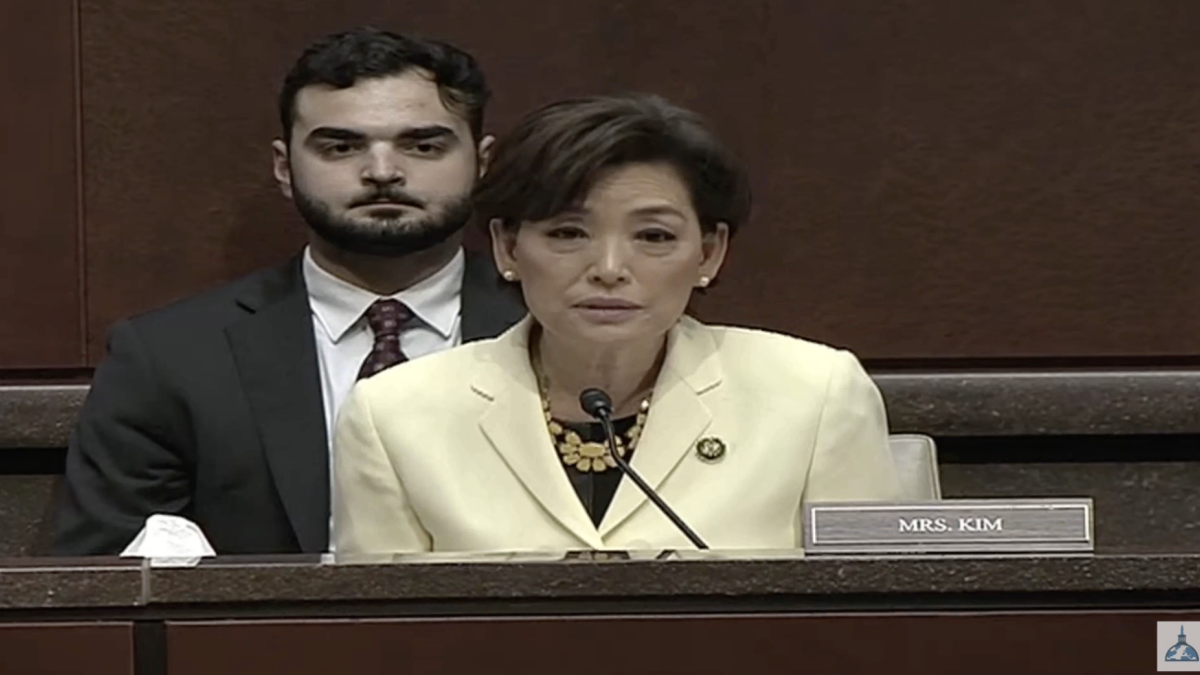Washington, DC – Today, U.S. Representative Young Kim (CA-40), chairwoman of the Indo-Pacific Subcommittee, delivered opening remarks at her subcommittee hearing titled, “Standing United Standing United Against the People’s Republic of China’s Economic Aggression and Predatory Practices.”
You can watch her remarks HERE and read her opening statement as prepared for delivery below.
Welcome to the Indo Pacific-Subcommittee’s hearing examining the People’s Republic of China’s Economic aggression and predatory practices.
Today we will hear from experts on the PRC’s economic coercion, and my goal for this hearing is to give the witnesses an opportunity to sound the alarm on the PRC’s predatory practices against our partners, allies, and even everyday Americans.
One of our witnesses is a firsthand victim of the PRC’s economic coercion and predatory practices. The PRC often successfully intimidates individuals and entities not to speak openly, so we thank you, Mr. Rafael, for having the courage to tell your story publicly.
I recall in October 2021, my colleague Mr. Brad Sherman said during a House Financial Services subcommittee hearing on China that several financial industry representatives had withdrawn their original commitment to testify because of fear of backlash from China.
It is unacceptable for the CCP to limit American’s free speech, and even more unacceptable that the CCP can do it without consequences.
Last month, the U.S. Chamber of Commerce warned last month that China’s mounting scrutiny of American companies has “dramatically” raised the risks of doing business in the country.
I would like to submit for the record a Reuters article titled “China detains staff, raids office of due diligence firm Mintz Group, as well as a Wall Street Journal Article titled, “Bain’s staff in Shanghai Questioned as China Targets Foreign Businesses.”
These headlines are unfortunately the new normal for American businesses, and as you will hear from the witnesses, we are not doing enough to make these predatory practices consequential for the CCP.
The CCP must know that every act of coercion will result in a countermeasure from the U.S. and its allies, and that the PRC must abide by the same international rules and norms that everyone else in the international community is bound by.
We must also recognize the immense economic pressure that the PRC puts on our allies, partners, and friends around the world. The CCP uses debt trap diplomacy through the Belt and Road Initiative to achieve its political goals abroad, so much so that it is willing to crash economies and generate instability, as it did in Sri Lanka.
This pressure is especially overt in the Pacific Islands, where PRC diplomats host politicians for dinner and those politicians leave with envelopes full of cash and promises of major infrastructure projects.
It’s an unfair fight—and we need to show up. We must equip our diplomats in these countries to respond to economic coercion, and our diplomats need a clear sense of the direction we’re going.
To respond to economic coercion, the U.S. should take several steps.
As a first step, American money and technology that fuels CCP coercion and predation cannot keep going to the PRC. It makes no sense to increase the PRC’s ability to coerce the United States and help it gain more leverage over us.
Second, if the PRC is unwilling to change coercive elements of its economy, the United States must make it more costly for the PRC to maintain that system. This means action on tech transfers and subsidies.
Third, the United States needs to build a coalition of countries, in particular in the Indo-Pacific, that adopt the same actions. I cannot stress enough the importance of coordinating our response to economic coercion with our allies and partners in the Indo Pacific. When even a few countries act in concert, we can undermine core CCP strategies and objectives. We must stand together to make sure each CCP coercive act against an aligned country fails.
I look forward to hearing from our panel on how to put these objectives into practice.




